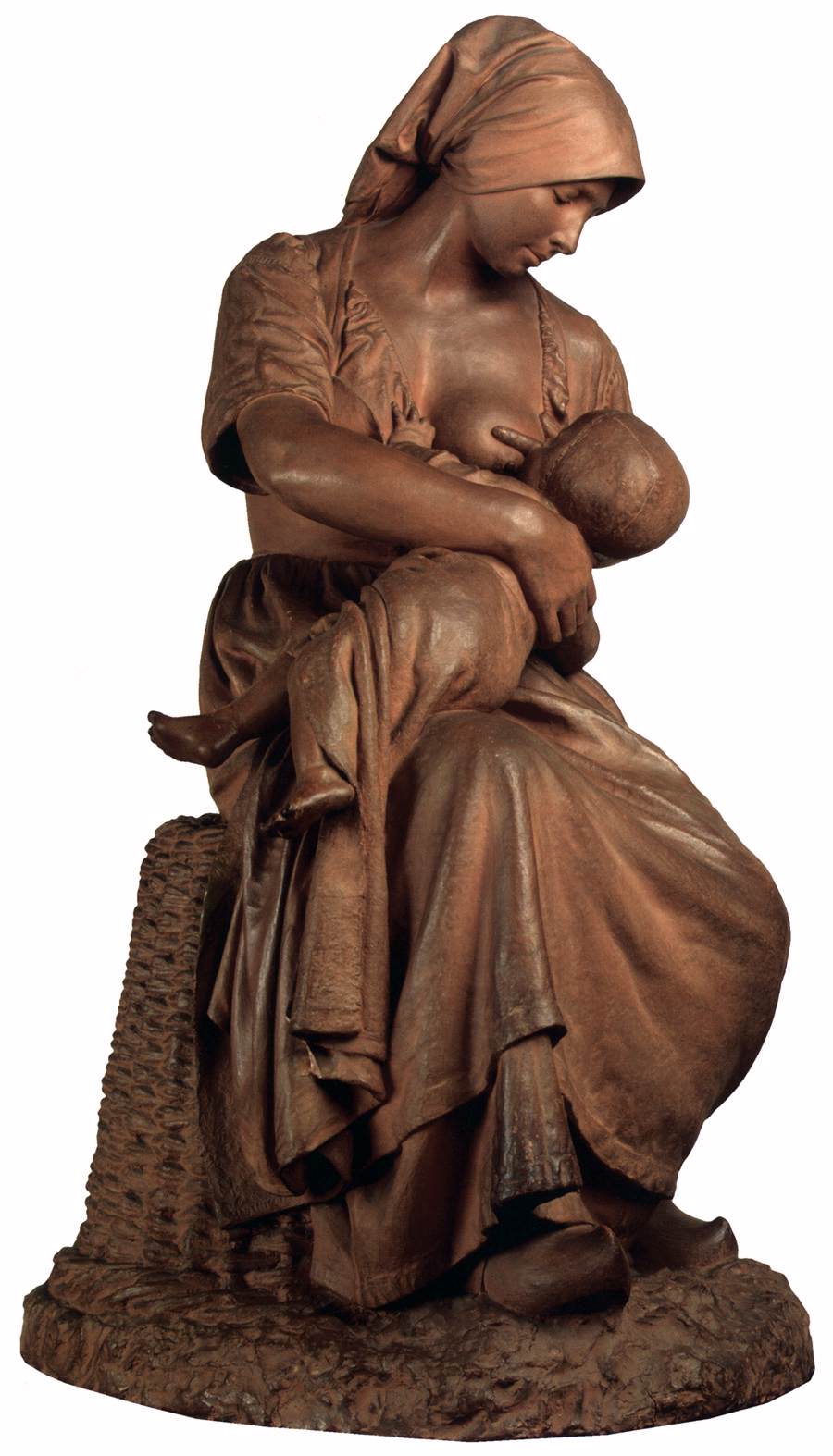Description
The painting "Peasant Woman with her Child" by the artist Jules Dalou is a masterpiece of French realism of the 19th century. The work, which is 125 cm high, represents a peasant mother with her son in her arms. The woman is dressed in simple clothing and a headscarf, while the boy is naked, suggesting the family's poverty.
The composition of the painting is very interesting, as Dalou uses the diagonal technique to create an effect of depth in the image. The mother and child are positioned in the lower right corner of the painting, while the background extends to the upper left corner. This creates a motion effect on the image, which is very effective.
The color used by Dalou in the painting is very natural and realistic. The woman's clothing is a light brown shade, while the boy has very soft, pinkish skin. The background is made up of a series of green and brown tones, suggesting a rural landscape.
The story behind the painting is very interesting. It was created in 1874, during the French Third Republic, a period of great social and political upheaval in France. The painting was very well received by critics and became one of Dalou's best known works.
A little known aspect of the painting is that Dalou created it at a time when he was interested in sculpture. In fact, the painting has a sculptural appearance, with the mother and child modeled in great detail and lifelikeness.
In short, the painting "Peasant Woman with her Child" by Jules Dalou is a masterpiece of French realism of the 19th century. The composition, color, and story behind the painting are very interesting, and the work is a testament to Dalou's artistic skill and ability to create images that are both realistic and emotional.

